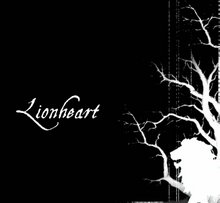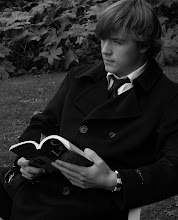
One of the world's leading voices of faith and social activism also happens to be one of the greatest rock bands in history. The Dublin-rooted band has sold over 145 million albums worldwide and has won 22 Grammy awards (more than any other band). The members of the band drink, smoke, and swear- yet a radical biblical agenda and faith fuel their lives and work. Throughout their career, as a band and as individuals, they have campaigned for human rights and social justice causes, including Amnesty International, the ONE Campaign, and Bono's DATA (Debt, AIDS, Trade in Africa) campaign. They have spoken in front of presidents, prime ministers, and the pope. What drives these four individuals? How is it that one of Christianity's leading voices for Christ are shunned by the churches? This paper will explore the spiritual journey that these Ireland boys have been on, exploring the true meanings of songs like “Mysterious Ways” and “I Still Haven't Found.” This is a dichotomy of the U2’s spiritual beginnings.
Boy
In all reality, Ireland is the last place anyone would have guessed that a band like U2 would have come out of. At the time of their beginning, Ireland was a musical-starved wasteland. Yet, somehow in the midst of the rock n' roll “drought,” came forth one of the most needed voice in our current day of age. U2, composed of Paul “Bono” Hewson (vocals and guitar), David “the Edge” Evans (guitar, keyboards, and vocals), Adam Clayton (bass guitar) and Larry Mullen, Jr. (drums and percussion), formed together in 1976 when they were mere teenagers with a very limited knowledge of music. However, by the early nineties, the band had already developed an early part of their sound.
The music that the band made was rare at that time for four guys from Dublin but, what was even more extraordinary was their faith. Almost a century before, Ireland was won of the greatest missionary-sending countries. But, within the last hundred years the country's (along with the rest of western Europe) faith has dwindled to the point of extinction. War and terrorism have been and are currently taking place between Catholic and Christian. The civil war within the Christian community has become as bad as a gang war. So to have a band like U2 come from an area where Christianity is thought the same of as a gang, is unfathomable. A little over a year into their musical career during a tour in England, Bono wrote to his father a letter explaining the beliefs of the band,
“You should be aware that at the moment three of the group are committed Christians. That means offering each day up to God, meeting in the morning for prayers, readings, and letting God work in our lives. This gives us the strength and joy that does not depend on drink or drugs. This strength will, I believe, be the quality that will take us to the top of the music business where never before have so many lost and sorrowful people gathered in one place pretending they're having a good time. It is our ambition to make more than good music.1”
U2's debut album was Boy (1980), which rang out with originality. The album was built around Edge's ringing guitar and was the sound that they began to build off of throughout their career. Boy was full of vibrancy, passion, and life. It had a sense of a searching adolescence that Bono's lyrics tried to wrestle with that would continue throughout their music and even with their newest album No Line on the Horizon (2009). Bono remarked that “Twighlight” was “about the gray area of adolescence, that twighlight zone where the boy that was, confronts the man to be in the shadows. It is about confusion, pain, and occasional exhilaration that results from confrontation.2” That’s what Boy was about and if ever a guitarist could take that sentiment and project it through an amplifier, it was The Edge.
The lyrics of the album are full of an honesty that would continue throughout Bono's career. The sincerity of Boy was extremely endearing. Whether it was dealing with suicide on “A Day Without Me” and seeing his own ego being surrendered, or a youthful dreaming of stardom and changing the world in “The Ocean,” or confronting his mother's death in “I Will Follow,” Bono was dealing with his world face to face. Looking life in the eye would become the trademark of his songwriting.
“I Will Follow” is perhaps the song that best touches the band's faith on Boy. Bono uses a phrase from Christ's parable of the prodigal son, whose father told him he was lost and now is found. Bono was interweaving the loss of his mother and finding God through the lyrics of the song. It's a song about adolescent tragedy as well as discipleship, skillfully disguised but just as clear, which would become another trademark of U2.
Rock n' roll usually comes from a rebellion. U2's rebellion was their faith-not their rock n' roll lifestyle. In 1983, Bono told Rolling Stone: “I think that, ultimately, the group is totally rebellious because of our stance against what people accept as rebellion. The whole thing about rock stars driving cars into swimming pools-that's not rebellion...Rebellion starts at home, in your heart, in your refusal to compromise your beliefs and your values. I'm not interested in politics like people fighting back with sticks and stones, but in the politics of love.3” For U2, it was more rebellious to read the Bible than to do drugs-a look on Christianity which was not normal for the culture in which they emerged. However, being from a place where “following Christ” was an idea almost gone helped the members grasp a radical faith in following Jesus. “I have this hunger in me...everywhere I look, I see the evidence of a Creator. But I don't see it as religion, which has cut my people in two. I don't see Jesus Christ as being any part of a religion. Religion to me is almost like when God leaves-and people devise a set of rules to fill the space.4”
October
No other U2 album was more obvious of a confession of faith than October (1981). With songs like “Gloria” and “Rejoice” and mentions of the cross in “Tomorrow” and “With a Shout (Jerusalem)” the songs dig deep into the roots of what it means to be a Christian and focus upward reaching to the heavens. Rarely has a collision between Christianity and rock had such a beautiful result like October.
Bono, The Edge, and Mullen had joined a Christian group in Dublin called the “Shalom Fellowship” around that time. The “Fellowship” was one of their main sources for spiritual energy and the members thrived upon the weekly prayer and Bible readings. However, while the band was touring between the time of Boy and October, a member of the satellite community of “Shalom” claimed to have a prophecy that God wanted the band to give up. When the band returned home for their encouragement from the group that they thrived upon, they were greeted with a split group deciding on whether or not the band should pack up their instruments.
To be a Christian and to find that you are a gifted musician brings forth certain questions and responsibilities. It is a mission field filled with temptations in drugs, sex, and materialism and is an easy place to lose your head with intoxication of fame or even lose your soul in trying to gain the world. This was the issue that the band was dealing with at the time of October. The parable of the talents in Matthew 25:14-30 was what helped the members decide on what to do with the dilemma that they were faced with. The lesson from the parable is that when you are given a gift, you have to use it. You have to deal with the responsibly and problems that come with it. You cannot run from it or hide it. You have to face the consequences of who you are and what your vocation is.
War
War (1983) brought forth a new face to U2, a political one. The previous two albums were their way of looking within themselves about their growth and development as followers of Christ and War was their way of turning the mirror from themselves to their home country, Ireland. Bono interrupted the craziness of U2's pre-Christmas gig in Belfast one night in 1982, three months before the release of War. The three thousand sell-out crowd watched as Bono climbed on top of anything he could to introduce the band's newest song. But in the introduction, the mood changed. The air became thin when Bono announced that the new song was about Northern Ireland. He was careful to point out that it was not a rebel song and if they didn't like it, Ur would never play it in Belfast again. However, by the end of “Sunday Bloody Sunday,” the crowd understood the true meaning and intention of the message.
“Sunday Bloody Sunday” was taken from “Bloody Sunday,” the name given to the two darkest days in Ireland bloody history. January 30, 1972, the day British troops shot and killed thirteen people during a civil rights march in Northern Ireland and November 21, 1921, the day that British troops entered the Gaelic Athletic Association and shot and killed twelve people. Even with the disguise of politics, “Sunday Bloody Sunday” has a Christian statement on War. Bono brings the words from the prophet Isaiah and the psalmist when they ask, “How long must we sing this song?” The same line is again brought up in the last song of the album titled “40” after Psalm 40.
“Sunday Bloody Sunday” has been one of the more emotional songs that U2 has ever written and became applicable once again on Ireland's Remembrance Sunday, November 8, 1987. The IRA set off a bomb at the War Memorial in Enniskillen. It is unknown whether the bomb was meant for British forces, but thirteen innocent people were killed. On the night of the bombing, U2 was performing a concert in Denver, Colorado. In the middle of “Sunday Bloody Sunday” Bono, emotional from the events of the day poured out his heart to the crowd, “Let me tell you something, I've had enough of Irish-Americans that haven't been back to their country in twenty or thirty years come to me and talk about the resistance, the revolution back home...and the glory of the revolution and the glory of dying for the revolution...fuck the revolution! They don't talk about the glory of killing for the revolution. What's the glory in taken a man from his bed and gunning him down in front of his wife and his children? Where's the glory in that? Where's the glory in bombing a Remembrance Day parade of old age pensioners, their medals taken out and polished up for the day. Where's the glory in that? To leave them dying or crippled for life or dead under the rubble of the revolution, that the majority of the people in my country don't want. No more!5” The band never played “Sunday Bloody Sunday” after that until the end of the Popmart tour ten years later because they never could escape that day in 1987.
When U2 brought the song back in 2001 for the Elevation tour, it became more of a celebration of the positive steps Northern Ireland had taken towards peace. Bono introduced it by saying “If you're Irish, you've got something to sing about on this song.”
The Joshua Tree
The Joshua Tree (1987) is arguably U2's finest moment. It was the album that finally brought them to the status of legends and is the album that is looked to as the U2 sound. The album connects antipathy towards America against the band's deep fascination with the country, its open spaces, freedom, and what it stands for. However, among all the tracks of the album, one song in particular has been misunderstood and ridiculed by the Christian community. “I Still Haven't Found” was a pivotal song in the band's artistic intention of the album but it was concluded by the Christian community that anyone who had not found what they were looking for, could not have found Christ.
“I Still Haven't Found” is a song determined to show us that Christians often hide behind masks. It wrestles with the idea that once someone makes the connection with Jesus Christ, he has arrived and immediately, all of the solutions to life's problems are handed to him. No more questions needed to asked-Jesus is the answer. Everything is now explained; there is nothing left to search for. “This view is built on a need for precision and perfection, which have always been enemies of art, which is all about coloring outside the lines.6” The song is about the reality that Jesus is a journey, not an arrival.
Although the band had written many songs with a Christian intent before they had never written a song with gospel roots like “I Still Haven't Found.” Bono, on numerous occasions, has introduced this song as being “a gospel song for the restless spirit.” The song was a concise creed of redemption: Jesus breaks the bonds, looses chains, carries the cross and all of our shame. The confession is followed by a clear statement of “I believe it.” The band, who had been condemned for not proclaiming the gospel and being ashamed of it, could not have more clearly expressed their beliefs than this song.
The feelings and emotions of the band in “I Still Haven't Found” can be seen in the attitude of Paul in Philippians. Even Paul could not find what he was looking for,
“Not that I have already obtained this or am already perfect, but I press on to make it my own, because Christ Jesus has made me his own. Brothers, I do not consider that I have made it my own. But one thing I do: forgetting what lies behind and straining forward to what lies ahead, I press on toward the goal for the prize of the upward call of God in Christ Jesus...Brothers, join in imitating me, and keep your eyes on those who walk according to the example you have in us...But our citizenship is in heaven, and from it we await a Savior, the Lord Jesus Christ, who will transform our lowly body to be like his glorious body, by the power that enables him even to subject all things to himself. Therefore, my brothers, whom I love and long for, my joy and crown, stand firm thus in the Lord, my beloved.7”
-Philippians 3:12-4:1
Paul had to take the belief, then go where the belief would lead him. He had to live by faith. If Christians look at the past few years in Rwanda, Angola, Mozambique, Sarajevo, the Middle East, or even Belfast, they cannot say that those tragedies are what they are looking for. If they look within themselves at a church full of gossip, dry faith, and hypocrites, they cannot say that that is what they have been looking for either. Looking into their own lives of lies, pain, lust, abuse, selfishness, and other forms of sin, they cannot say that is what they are looking for. It is the realization that they haven't found what they were looking for that should draw them back to the hope of growing and developing a deeper faith in Christ. Bono told the LA Times around the time of Joshua Tree's release that,
“I think there was a certain uptightness to the first three albums...At one time, I thought you had to have all of the answers if you were going to write a song, so it was embarrassing to make a record that was filled with doubts and questions. Then I began to see that many artists who inspired me...had same feelings of awkwardness and spiritual confusion. I realize now it's OK to say you still haven't found what you're looking for.8”
It is the gift of grace, the fact that someone came to break our bonds and loose the chains and carry the cross of our shame. “I Still Haven't Found” is a perfect description for our imperfect faith, where we need to acknowledge that I believe in Christ and all He has done but I need to keep running.
U2: Grown Up
To this day, U2 still pounds out songs full of questions and praise, pushing the boundaries of their music skills and of their faith. Their newest album, No Line on the Horizon, has been called by Bono “gospel songs of the future.” U2 is still the same band they were when they started but have progressed and affected music like no other band ever has. In a recent Rolling Stone interview The Edge remarked,
“We're all changing. We're all growing up and we're all going through what you go through when you have families, when you have a big house and a dog, whatever. It's not like we're all living in the same flat anymore. But I think we all know that there's something kind of touched about the way the four of us interact musically. We've weathered so much stuff over the years that could well have broken up a group and we're still here. I think it's down to a number of factors. First off there's genuine friendship and regard personally between the four members of the band. We hang out together. We enjoy each other's company. We see each other on our break times as well as when we're working. It's not like I'm rushing to get out of the studio to see my friends. I'm in the studio with my friends. That's sort of unique. I think we all fully appreciate how special it is, how unique it is to still be making great music after so many years. We don't want to fuck up. It's too precious.9”
U2 has said that they will continue to create music and one can only assume that they will still have questions left unanswered. Their friendship is so unique among rock bands and these four Irish boys have become more like brothers rather than band members. The four will remain family until they die and continue to encourage each other to grow and although their faith has been challenged throughout the past few decades, they will continue to pursue the kingdom that is coming and make music in the process.



















No comments:
Post a Comment